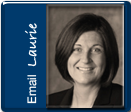 According to the Employee Benefit Research Institute the past few years saw a sharp decline in Americans’ confidence about their ability to obtain a financially comfortable retirement. The 2011 Retirement Confidence Survey finds that the percentage of workers reporting they are not at all confident in a comfortable retirement has climbed to a new high of 27% (up from 22% in 2010 and a recent low of 10% in 2007).
According to the Employee Benefit Research Institute the past few years saw a sharp decline in Americans’ confidence about their ability to obtain a financially comfortable retirement. The 2011 Retirement Confidence Survey finds that the percentage of workers reporting they are not at all confident in a comfortable retirement has climbed to a new high of 27% (up from 22% in 2010 and a recent low of 10% in 2007).
If you believe you are behind in preparing for retirement there is no need to make the fundamental tenants like saving money and repeating the process over and over more complex. Here’s how to get started today:
- Remember your investment time horizon is the rest of your life . . . and not your retirement date. This means if you are 45 today and live to age 90, you have 45 years for your money to be working for you.
- Ramp up retirement savings by contributing the maximum amount to your 401k plan; ($17,000 for 2012 and if you are over 50 the extra “catch-up” amount is $5500). IRA and Roth IRA limits for 2012 are $6000 and the extra catch-up amount for those 50 and older is $1000.
- Avoid speculative investments to try and make up for lost time or money. If you don’t already have a financial plan to help guide you to a comfortable retirement make it a goal to call a financial planner today.
It’s fair to say that retirement in the 21st century will be quite different than generations before. But that doesn’t mean you aren’t in control. By focusing on your own behavior, you do have the ability to create a map for your own future.
Please watch for our next post where we discuss generating income in retirement.
 The information contained in this report does not purport to be a complete description of the securities, markets, or developments referred to in this material. Any information is not a complete summary or statement of all available data necessary for making an investment decision and does not constitute a recommendation. Any opinions are those of Center for Financial Planning, Inc., and not necessarily those of RJFS or Raymond James.
The information contained in this report does not purport to be a complete description of the securities, markets, or developments referred to in this material. Any information is not a complete summary or statement of all available data necessary for making an investment decision and does not constitute a recommendation. Any opinions are those of Center for Financial Planning, Inc., and not necessarily those of RJFS or Raymond James.